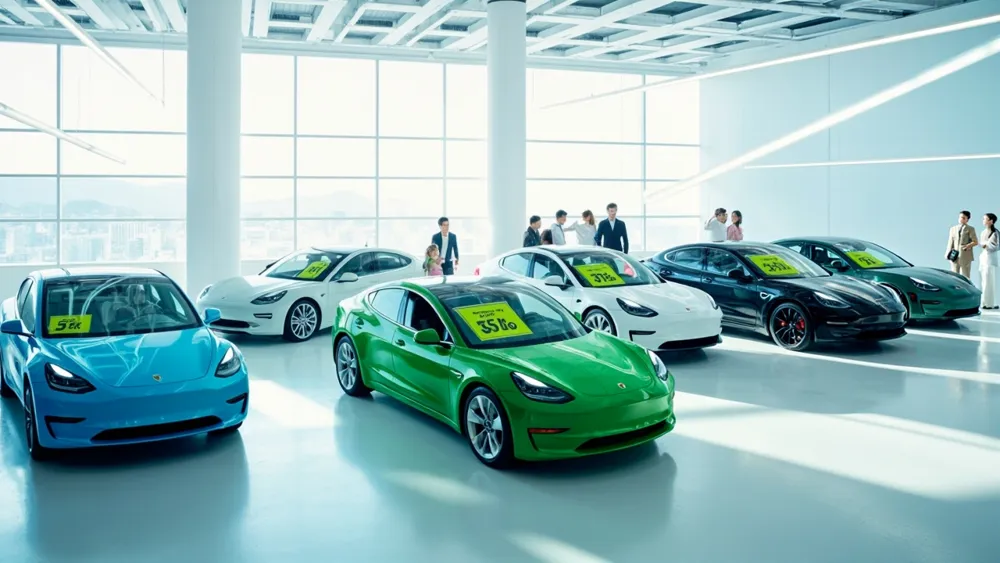China's EV Price War: Prelude to Financial Crisis or Competitive Reset?

The recent turmoil within China's electric vehicle (EV) sector has sparked considerable concern among industry experts and investors alike. With the industry's leading player, BYD, at the forefront of a steep price war, fears of an imminent financial crisis loom large. This development is significant, as it hints at deeper issues at play not only within the automotive market but across the broader economic landscape in China.
Analysts point out that the aggressive price cuts—some as high as 34%—are not simply a tactical move to gain market share but reflect an urgent need for manufacturers to alleviate mounting inventory levels and increasing production costs. Statistics reveal that the average selling price of EVs has been declining consistently, and the sector could experience GDP-weighted downturns where overall economic activity slows as consumer confidence wanes. For instance, reportings indicate a need for employee layoffs in an industry that has already begun to mirror the conditions seen in China’s troubled property sector, suggesting that the ripple effect may indeed reflect a larger systemic crisis.
This intense competition among EV manufacturers is leading to concerning practices as illustrated by the introduction of ‘zero mileage used cars’. Such tactics not only compromise the integrity of the automotive market but may inadvertently reveal a lack of sustainable business models among the companies involved. As one executive aptly noted, an 'Evergrande-like' crisis could already be festering within the automotive industry—one that has the potential to touch various stakeholders, including consumers who may become wary of purchasing decisions and even regulators who need to reassess market oversight strategies. Should the price war continue unabated, could we possibly witness an evaporation of investor confidence akin to what we experienced during the dot-com crash when speculative exuberance fell victim to business realities?
As these market dynamics unfold, they raise some critical considerations for stakeholders in this evolving landscape. Institutional investors might need to reconsider their exposure to Chinese EV stocks with a closer eye on operational sustainability rather than merely market performance metrics. Meanwhile, consumers could face a precarious decision-making environment, continually caught between potentially lower prices as companies attempt to outdo one another and the implications of buying into an increasingly unstable industry. Policymakers and industry leaders will need to navigate these choppy waters wisely, perhaps seeking collaborative solutions that ensure fair competition, promote sustainable practices, and avert a market collapse—an arduous task that underscores the interconnected nature of global markets.
Read These Next

Retail Sales Surge Signals Economic Resilience
China's retail sales have surged, the fastest since late 2023, aided by policy incentives and consumer confidence.

Strategic Shifts and Financial Trends in the Aquaculture Industry
This article analyzes a company in the aquaculture industry, focusing on its shift towards international markets, financial trends, significant events, and associated risks.

Yipinhong Pharmaceutical Group: Preparing for Strategic Shareholder Engagement and Financial Optimization
This article analyzes the recent corporate governance actions and financial management strategies of Yipinhong Pharmaceutical Group Co., Ltd., as the company prepares for its extraordinary general meeting in July 2025.
